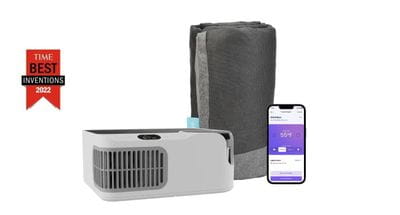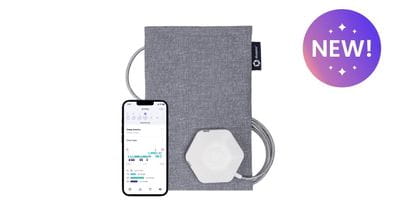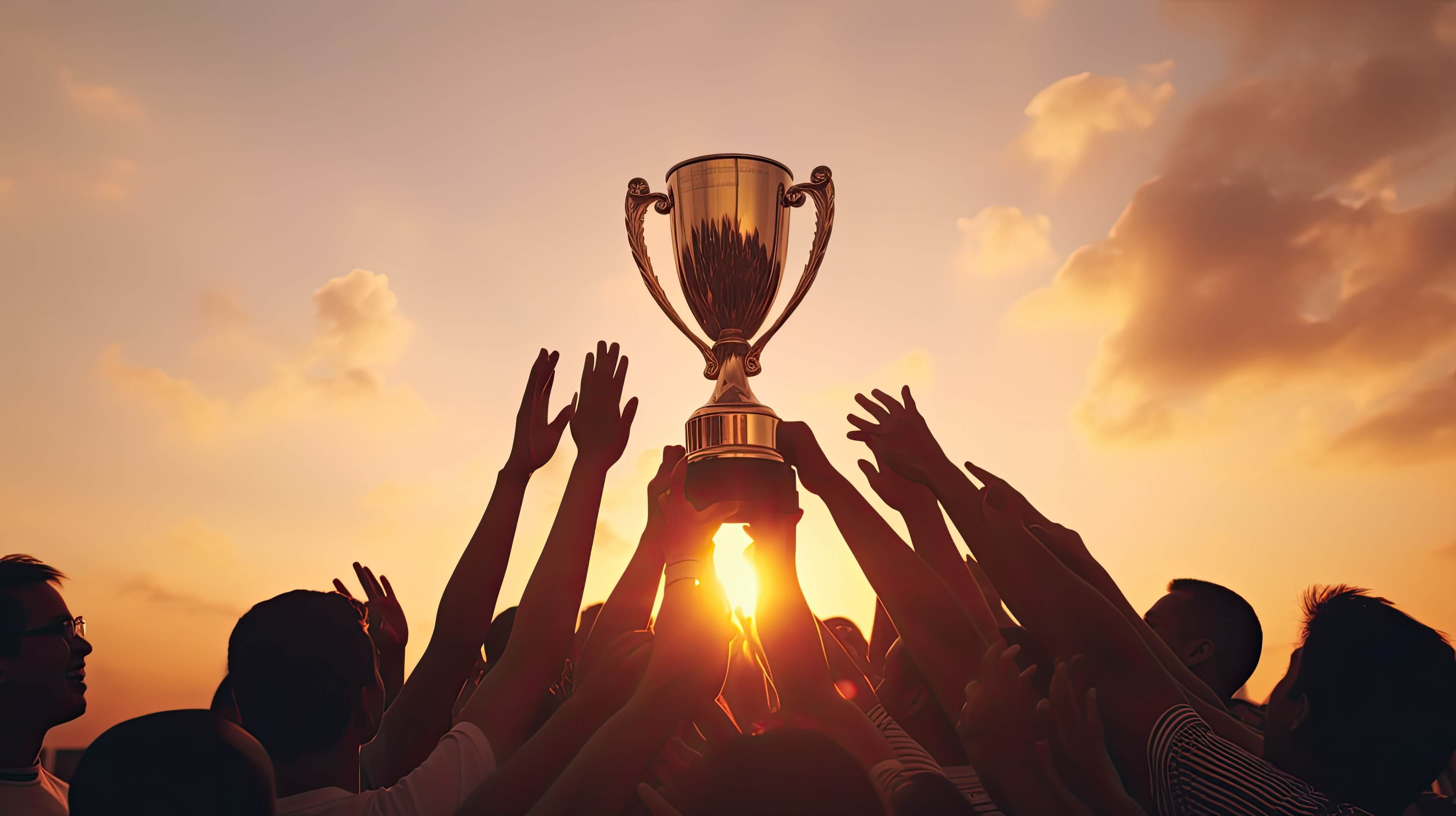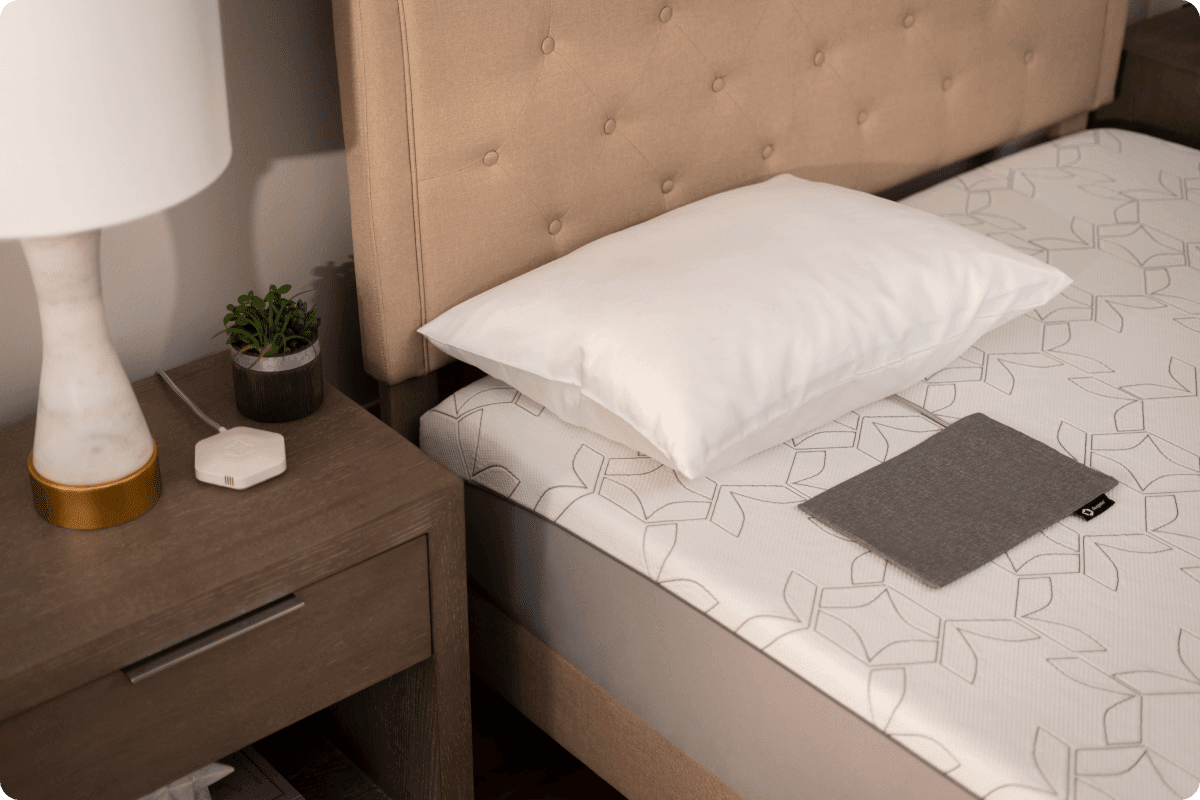Unlocking Peak Performance:
The Power of Quality Sleep
Athletic performance starts with quality sleep.
Recovery is essential for peak performance.

Mastering the Game: How Critical Sleep is for Athletes' Success
Quality sleep is crucial for an athlete's performance and recovery. During these restful hours, muscle repair, memory consolidation, and hormone regulation occur. Compromising sleep can significantly affect performance, alertness, and injury risk.
Sleep Optimized for Peak Performance
Chilipad Dock Pro

Most powerful & personalized
- The Dock Pro Sleep System is the most powerful bed cooling system on the market.
- On-device and in-app programmable temperature range of 55°F - 115°F.
- Created for athletes looking to optimize elite performance and maximize recovery and mental clarity.
- Sleep cooler, avoid night sweats, and obtain deep sleep, increased HGH production, and glycogen replenishment. Wake up refreshed!
Chilipad Cube

Single Temperature System
- Affordable cooling solution for professional and non-professional athletes alike.
- Single temperature system ranging from 60°F - 115°F.
- Perfect if you want a single bed temperature all night long. On-device controls and handheld remote to “set it and forget it.”
- Sleep cooler to promote deep, restorative sleep necessary for performance, recovery, and mental rejuvenation.
Sleep Tracker

Sleep tracking made easy
- Pairs with Dock Pro for real-time, Al-driven temperature adjustments to elevate athletic performance by helping boost REM and Deep Sleep.
- A non-wearable sleep tracker eliminates the need to charge or wear a device.
- Provides insights into sleep quality, duration, sleep stages, and more.
- Improve sleep habits for better performance and recovery with the app.
- Pairs with Apple Health and Google Health Connect.
The Power of Cool Sleep and Athletic Performance
Reduce fatigue and risk of injury
Maximize HGH production and muscle repair
Increase mental acuity and emotional wellness
Bulk Sales for Coaches and Trainers: Enhancing Team Sleep Quality
Are you looking to purchase Sleep Systems in large quantities?
Coaches and trainers interested in improving their athletes' sleep quality and overall physical and mental performance can contact our team for bulk purchase inquiries and more information.

Testimonials
The Sleepme Promise
Testimonials
Frequently Asked Questions
How Can Coaches and Trainers Help Athletes Improve Their Sleep Habits?
Coaches and trainers play a vital role in helping athletes improve their sleep habits. Athletes can educate themselves on the significance of sleep for both recovery and performance. By incorporating sleep strategies into training schedules and emphasizing good sleep hygiene, coaches can help athletes establish a routine that enhances their overall sleep quality and health.
Moreover, coaches should encourage athletes to limit stimulants such as caffeine before bedtime and to create an environment conducive to restorative sleep. Also, sleep trackers can be used to monitor HRV and other essential data to better understand athletes' sleep and prevent them from overtraining.
Why Is It Important for an Athlete to Sleep Cool?
Cooler sleep makes more muscle. The cooler one sleeps during the first half of the night, the more Deep Sleep one achieves. A whopping 70% of Human Growth Hormone (HGH) is released during Deep Sleep. Therefore, cooler sleep = deeper sleep = more HGH = more muscle building and repair.
How Do I Determine Which Sleep System Is Best for My Team?
Individuals who put off large amounts of heat (larger framed athletes, highly metabolic athletes) will benefit most from the Chilipad Dock Pro as it boasts the most rapid and powerful cooling capabilities. Meanwhile, athletes with lower BMI will do great with the Chilipad Cube.
To explore and compare your options for better sleep, visit our sleep system comparison page, as we provided a comprehensive breakdown.
Also, learn more about mattress for athletes.
What Is the Recommended Amount of Sleep for Athletes?
Experts recommend 7-9 hours of sleep per night for athletes. However, even more sleep can be beneficial for athletes, particularly those engaged in high-intensity training or competition. It's not just about the quantity but also the quality of sleep that counts.
Great sleep promotes muscle recovery, mental clarity, and overall performance. Each athlete's needs can vary, so it's important to listen to the body and adjust sleep schedules for optimal performance.
Learn more by reading a recent study, How Much Sleep Does an Elite Athlete Need?
What Can Affect the Quality of Sleep?
For athletes, sleep quality can be influenced by various factors, including their training schedules, physical strain from intense workouts, and the mental stress of competition. Nutritional choices and hydration levels also play a significant role.
Travel, especially across time zones, can disrupt natural sleep patterns. Environmental factors like unfamiliar sleeping environments and optimal recovery conditions are also crucial. Understanding and managing these elements are key for athletes to maintain peak performance and ensure effective recovery through quality sleep.
Additional reasons for sleep issues can be found in your sleep environment (too noisy, too hot, or too bright), sleep schedule (inconsistent sleep patterns), stress, anxiety, caffeine, alcohol, diet, screen time, and exercise timing.
For helpful tips on improving your sleep, check out, 13 Ways to Sleep Better at Night. You'll find practical advice and insights to help you enjoy a deeper, more rejuvenating night's sleep.
Are There Specific Sleep Strategies for Athletes?
Yes, there are specific sleep strategies that can be used to help optimize performance and well-being. These include maintaining a regular sleep schedule, establishing a daily pre-sleep routine, and ensuring a quiet, dark, and cool sleep environment.
Learn more about the benefits of sleeping cooler.
How Do Travel and Time Zones Affect Athletes' Sleep and Performance?
Travel and time zone changes (also known as Jet Lag) can significantly affect athletes' sleep and performance by disrupting the body's internal clock or circadian rhythm, causing fatigue, and decreasing mental acuity.
These changes can impair an athlete's reaction time, decision-making abilities, and overall physical performance. To minimize jet lag, athletes should gradually adjust their schedules to the new time zone before traveling and expose themselves to morning sunlight to reset their internal clock. Staying hydrated and following a healthy diet are also crucial.
The following study addresses more about how jet lag affects athletic performance.
The Role of Sleep in Achieving Peak Athletic Performance
We're dedicated to assisting coaches and trainers in improving athletes' overall performance and longevity through effective sleep solutions. Explore our expert content filled with tips for managing hot sleep issues, recovery protocols, and solutions for peak performance.















